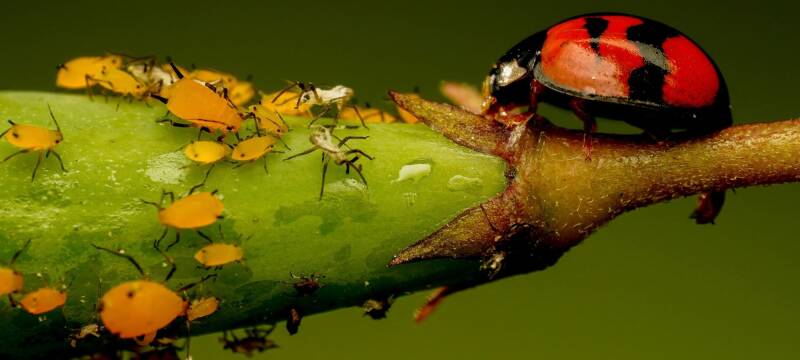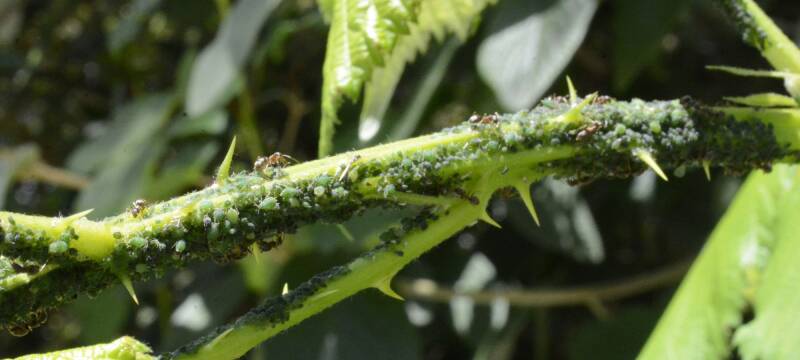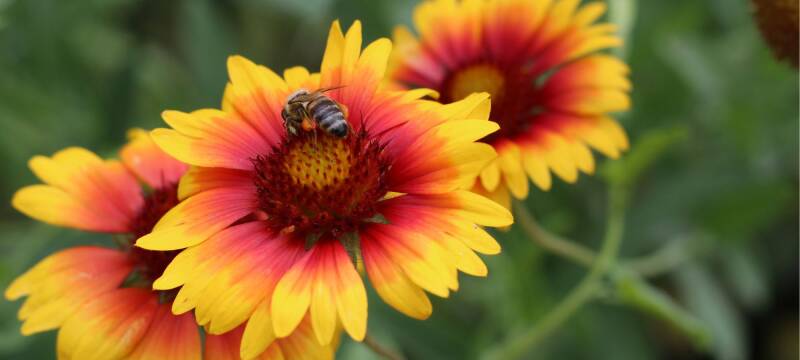
More than 90% of insects in your garden are either beneficial or harmless according to University of Florida, Institute of Food and Agricultural Sciences.
That’s right. Many of the bugs crawling around your collard greens and basil aren’t villains. In fact, some are your garden's best allies. But let’s be real: when you spot chewed leaves or sticky residue, it’s hard not to go full panic mode.
We’ve been there. When we first got our hands in the dirt, we thought every bug was out to destroy our crops. Turns out, we were wrong. And you might be too.
In this post, we’ll help you:
- Understand which garden insects are friends and which are foes
- Learn how to deal with the pests without reaching for chemicals
- Discover beginner-friendly tips for protecting your plants naturally
The Truth About Garden Insects
Some insects are like free garden workers. Pollinating, composting, pest-controlling wonders. Others? Not so helpful. But knowing the difference is where the magic happens.

The Friends: Beneficial Insects
Here are a few garden MVPs you’ll want to attract and protect:
- Ladybugs – These little red dots devour aphids like it’s their full-time job
- Lacewings – Their larvae are tiny green machines that eat soft-bodied pests
- Parasitic wasps – They don’t sting you, but they target garden pests like tomato hornworms
- Bees and butterflies – Essential for pollination, especially in fruiting veggies
These are your beneficial insects, the good guys doing the dirty work for free.
How to Attract Beneficial Bugs
- Plant native flowers like blanket flower, yarrow, and coreopsis
- Avoid spraying pesticides (even organic ones) during flowering
- Provide shallow dishes of water with pebbles for landing spots
Pro Tip: In Jacksonville, plant nectar-rich flowers in early spring to get ahead of the pest wave.
The Foes: Common Garden Pests in North Florida
Unfortunately, not all bugs are on your side.

The Usual Suspects
- Aphids – Tiny, soft-bodied bugs that suck sap and spread disease
- Whiteflies – Clouds of pests that attack the underside of leaves
- Tomato hornworms – Huge green caterpillars that can strip a tomato plant overnight
- Squash vine borers – Devastating to summer squash and zucchini
- Nematodes - Microscopic worms in the soil. Some are helpful, but the pest varieties attack plant roots, causing swelling, stunted growth, and yellowing leaves.
Signs You’ve Got a Problem
- Yellowing or curling leaves
- Sticky residue or black mold
- Chewed foliage or fruit
Stunted plant growth

What to Do About the Bad Bugs
You can manage pests without spraying your whole garden into a dead zone. Here’s how.
Organic Pest Control That Actually Works
We’re big fans of starting with the least invasive option. Here are some beginner-friendly methods:
Soap and Water Spray
A simple mix of 1 tablespoon mild liquid soap (like Dr. Bronner’s) to 1 quart water. Spray directly on pests. Great for aphids and whiteflies.
Handpicking
Gross? Maybe. But picking off hornworms in the morning or evening is super effective.
Companion Planting
Plant basil near tomatoes to repel whiteflies, or marigolds to deter nematodes. Marigolds can be planted near:
- Tomatoes – to repel root-knot nematodes that love tomato roots.
- Peppers – to help reduce aphids and other sap-suckers.
- Cucumbers – to deter cucumber beetles.
- Squash and zucchini – to keep squash bugs at bay.
- Eggplant – Provide general pest resistance
Release the Good Guys
Buy ladybugs or predatory nematodes from a reputable garden supplier. Just make sure your space supports them. No chemicals. Lots of pollen.
Remember: organic pest control is about balance, not elimination.

The Garden Mindset Shift
Here's the thing. Not all holes in leaves mean disaster. A healthy garden isn’t bug-free. It’s balanced.
You’re not aiming for perfection. You’re aiming for resilience. Some pest damage is totally normal and won’t ruin your harvest.
If you're gardening here in Jacksonville, expect pest activity to peak in spring and late summer. That’s when vigilance and your strategy matter most.
Bugs Don’t Have to Bug You
Now you know. Garden insects aren’t all bad. Some are your secret weapon. Others just need a little management. Either way, you’ve got what it takes to grow happy, healthy plants without nuking your garden.
You’ve got this.
And if you'd rather learn alongside other veggie lovers while harvesting fresh produce? Join us.
Become a member of our subscription U-Pick vegetable garden!

